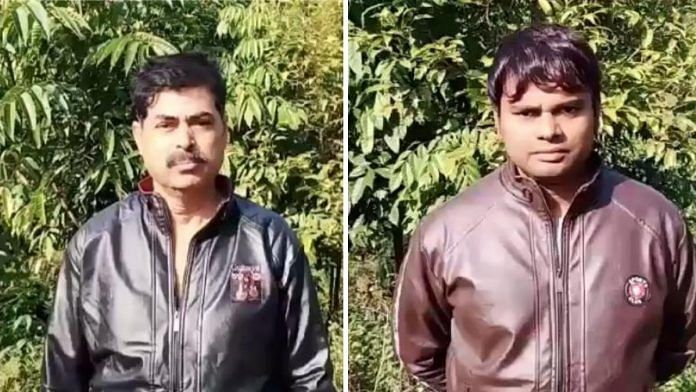Guwahati: The New Delhi-headquartered Quippo Oil and Gas Infrastructure Limited has agreed to create 5,000 jobs for Assamese youths to secure the release of their two employees abducted by the banned United Liberation Front of Assam (Independent) or ULFA(I), the mediator negotiating between the two sides has claimed.
Speaking to ThePrint, Kaushik Phukan, the mediator, said the negotiation between the two sides concluded late Monday evening, adding that there would be no payment of ransom.
“We have wrapped up the talks. We will have them (Quippo employees) back with us very soon. Both sides are positive. Quippo will create 5,000 jobs for eligible engineers from Assam,” Kaushik Phukan, the mediator between Quippo and ULFA, told ThePrint. He is the son of missing former mediator Rebati Phukan who was working to resolve issues between the Government of India and ULFA (I) through peace dialogue.
On the initial demand of a ransom payment, Phukan said no money changed hands in this abduction case, and that ULFA(I) commander-in-chief Paresh Baruah’s demand was “growth and opportunity in terms of jobs for Assamese youth”.
No statement has been released by the oil firm yet. The company has been engaged in talks with the outfit through the mediator. A police officer said they would issue a statement once the two men return.
The development comes three days after Paresh Baruah told ThePrint that a “positive result” was expected in the abduction of two employees of the oil firm.
The case brought Baruah back into the limelight even as the act fetched him condemnation from all quarters. Baruah has been leading the ULFA(I), a breakaway faction of secessionist ULFA, since 2012 when the parent organisation opted for talks with the Indian government without preconditions.
Also read: ULFA(I) abduction of Quippo staff ‘desperate’ yet dark reminder of Assam’s insurgency past
Quippo abduction
The Quippo employees — drilling superintendent Pranab Kumar Gogoi, 51, and radio operator Ram Kumar, 35 — were abducted on 21 December from the company’s Kumchaikha hydrocarbon drilling site in Arunachal Pradesh’s Changlang district, which borders Myanmar.
The ULFA(I), with the Myanmar-based Khaplang faction of National Socialist Council of Nagaland (NSCN), had earlier set 16 February as the deadline for the ransom payment.
After threatening to take the “ultimate step” against the hostages, Baruah called up journalists in Assam last Sunday to say that it “deferred action” against the two, and that the “deadline set for their release has been extended”. While Gogoi is an Assamese from Sivasagar district, Ram Kumar is from Bihar.
ULFA(I) was initially reported to have demanded a ransom of Rs 20 crore from Quippo, a subsidiary of SREI Infrastructure Finance Ltd that does contractual work for Oil India Limited (OIL) in the extraction of crude petroleum and natural gas.
History of ULFA
ULFA came into existence in the same socio-psychological situation of the late 70s and early 80s that had led to the Assam agitation in 1979. The six-year movement sought the detection of illegal immigrants, their deletion from the voters’ list and deportation to Bangladesh.
During the period, an anti-outsider feeling spread among the Assamese because of lack of opportunities for the unemployed educated youth, and the growing political influence of non-indigenous migrants in the political arena of Assam.
Two regional parties, Asom Jatiyotabadi Dal and Purbanchaliyo Lok Parishad, campaigned against the Central government, to be joined later by the All Assam Students’ Union (AASU), which assumed the leadership role in the movement. The Assam Accord was signed in 1985 to resolve the immigrant issue.
A small group of youths who believed in armed struggle and were skeptical about the much-hyped “constitutional safeguard” for Assamese, formed ULFA while taking lessons from the struggle of the Naga rebels.
While secession from India was ULFA’s declared goal, it has consistently stood against illegal immigration — a hot-button issue in Assam. Baruah joined the group in 1981. Before that, he had played football for Oil India and was a goalkeeper. He was part of the second wave of ULFA leaders along with Arabinda Rajkhowa (Ranjan Rajkumar), Anup Chetia (Golap Baruah) and a few others from Nalbari.
The initial leaders of the group were either caught by the police or surrendered, leaving the outfit to come overground.
Also read: What is the Karbi insurgency, its violent past & how it could impact coming Assam election
